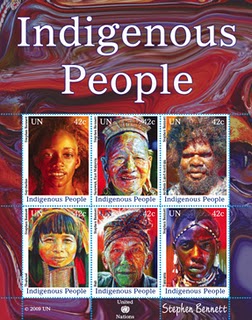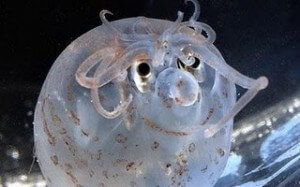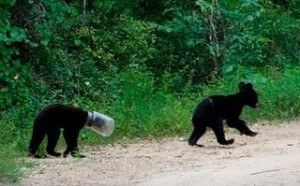Archive for the ‘agribusiness’ Category
Top Ten Tuesday – A Word from Your Mother
This is from the front page of the blog “A Word from Your Mother:”
“The world is a dangerous place to live;
not because of the people who are evil,
but because of the people who don’t do anything about it.”
~ Albert Einstein
Very powerful words to introduce an extremely powerful blog about our planet. Normally I have ten different things, but this time I want to introduce you to A Word from Your Mother and ten different entries that you should read if you are at all concerned about our planet. There is some very troubling stuff on this blog, but I firmly believe that we need to understand as much as possible about the potential fate of our planet and the sentient organisms inhabiting it. Our history has been woefully uninformed on many of these issues. Be prepared to be worried, upset, and more knowledgeable. With knowledge comes action.
First up, Indigenous People: Not Only Plants and Animals Face Extinction. “According to the latest estimates, there are only approximately 370 million indigenous people, spread across 70 countries, left on earth.” There are loads of great links to human rights and the UN Declaration of Indigenous People’s Rights.
 Chief Seattle sums it up well:
Chief Seattle sums it up well:
Next, a video from TED, Ideas Worth Sharing: America’s Native Prisoners of War.
OMG – One More Generation – Saving endangered animals for the next generation, an organization started by children. This is just one of the many interesting and important organizations you can get to on the sidebar of the blog.
Monsanto – a company most of us have never heard of, or if we have, we connect it to rugs. Unless you read Michael Pollen (Omnivore’s Dilemma), Barbara Kingsolver (Animal, Vegetable, Miracle), and watched Food Inc. Then you’re aware of what’s happening with our food sources, and potentially our farmer’s markets. This entry, Do You Know What You Are Eating and Breathing? takes on Monsanto. This is part 1 of 10. Again, be prepared to be troubled.
Mother Earth Still Has a Few New Things to Show Us is more uplifting.
Out of Sight, Out of Mind is an entry looking at the Gulf oil spill. Take a close look at the issue of plastic in our environment.
Protected Area of the Week from ICUN (International Union for Conservation of Nature) – world’s oldest and largest global environmental network – a democratic membership union with more than 1,000 government and NGO member organizations, and almost 11,000 volunteer scientists in more than 160 countries. Take a look at what’s disappearing from the planet.
And finally, (I know, it’s only 8…) a reminder from Randy Newman…It’s a Jungle Out There.
Food, Glorious Food…Not…..
This is a different post, based on some of the reading I have been doing. It started with Michael Pollan’s The Omnivore’s Dilemma, all about where our food is coming from. I’ve started looking at farmer’s markets to get truly fresh produce. What convinced me that we all could be eating so much better were two incidents in orchards. One years ago at a Maryland roadside stand, where the peach was the best ever, and the juice just dripped down my face and hands as I devoured the fruit. The second this summer at a farmer’s market, where I ate a tomato – and was stunned at how good it tasted – NOTHING like what I would buy in the grocery store.
Pollan was very detailed as he described the typical meal from the grocery store, and how so much of what we eat is as a result of a corn derivative, that really isn’t helping our family farms. His second “meal” looks closely at the organic farms, and it is an eye-opener. The amount of science a farmer has to know to create a working, sustainable farm is nothing short of staggering. Having this information makes you look at the grocery store in a very different light, wondering about our role in the “food chain” that we are accustomed to now.
I have been wanting to buy Barbara Kingsolver’s new book Animal, Vegetable, Miracle, about a year of living off the land. Since I have become very interested in what I am eating, and where it comes from, this seemed like a good choice. I love Kingsolver and was sad to see her leave Tucson. But I certainly understand the reasons – Tucson is not a sustainable city…we’re at the end of the water line from the Colorado River, all our food is imported, except for the few farmer’s markets springing up, and there’s no manufacturing or basic farming left (cotton isn’t edible, last I checked.)
I love Kingsolver’s work. I first read Small Wonders, a series of environmental essays that really pinpoint what we are losing in our natural world. From there I read High Tide in Tucson, essays particular to Southern Arizona. I cannot go down to Bisbee and Sierra Vista without looking at the San Pedro River, dry now, but a few years ago was still flowing well. We are losing our riparian areas here in Arizona at a very rapid rate.
Back to Animal, Vegetable, Miracle. While Kingsolver travels some of the same roads as Pollan, she delves more into agribusiness and corporate control of what we eat, what we plant, and what we buy for seeds. To say I was shocked would be an understatement. Corporate greed is driving the food business, to the extent that farmers are being sued if seeds developed by Monsanto and carrying their patented genes land on the farmers’ fields and germinate. (The Strange Case of Percy Schmeiser, p.50) I had to reread that section to be sure I understood it completely.
“Garden seed inventories show that while about 5000 nonhybrid vegetable varieties were available from catalogs in 1981, the number in 1998 was down to 600.” (p.52) And I’m only through 6 chapters, so I’m sure you’ll be hearing more about this. For someone who studied history and political science, I am amazed that I continue to be as naive as I am sometimes.
In the meantime, if you’re interested, here’s a couple of sites from Kingsolver’s book: Biotech Info, Organic Consumer’s Association
Kingsolver’s works are beautifully written. Each of them can be found by clicking on the Amazon button on the right. Enjoy her beautiful words and her heartfelt messages in her essays, as well as the underlying themes in her fiction. She’s worth rereading lots of times.


